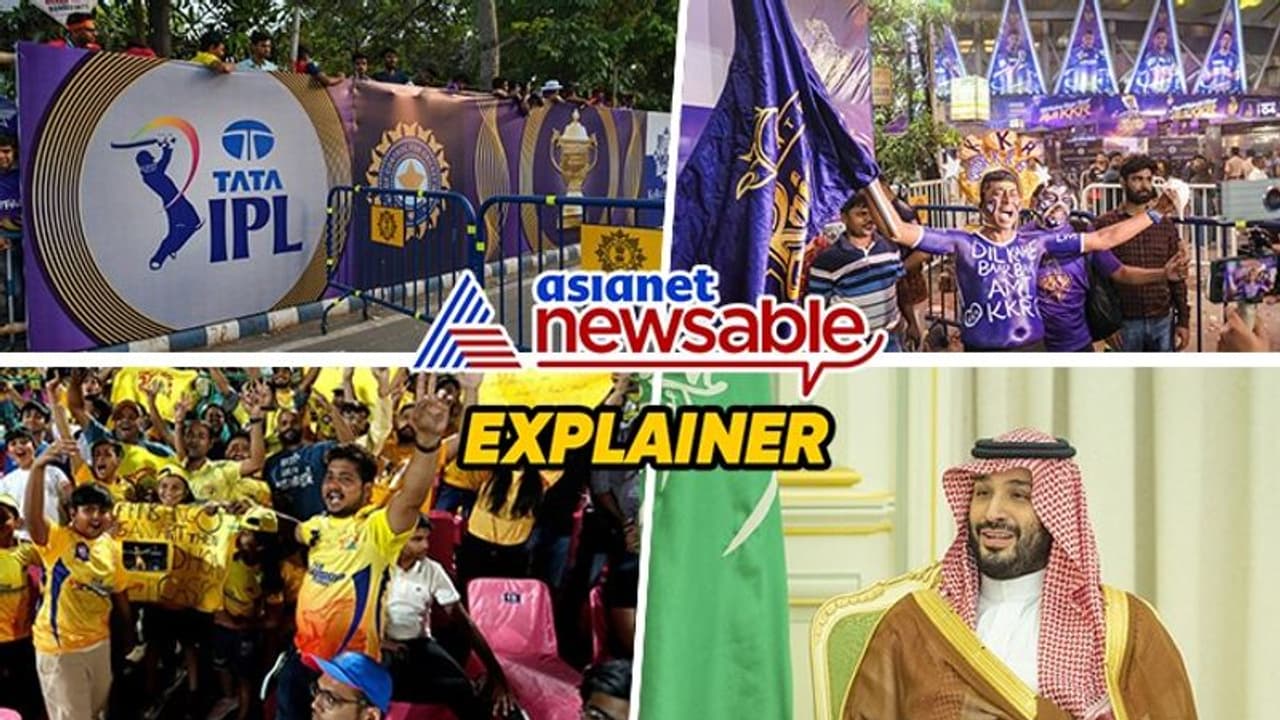Saudi Arabia's interest in a multi-billion dollar Indian Premier League (IPL) stake marks a potential transformative shift in Indian cricket's financial landscape and global expansion.
The reported interest from Saudi Arabia in acquiring a substantial stake in the Indian Premier League (IPL) signifies a potentially significant development in the cricket landscape, particularly in India, the sport's powerhouse. The IPL, renowned as the richest T20 cricket league globally, has not only transformed cricket but also redefined the sports entertainment industry since its inception in 2008.

The proposed multibillion-dollar investment, with the potential involvement of Saudi Arabian Crown Prince Mohammed bin Salman, underscores the financial and strategic allure of the IPL. The investment could have widespread implications, not just for the IPL itself but also for the broader cricket ecosystem in India.
Firstly, if this investment were to materialize, it could inject an immense financial boost into the IPL. The league's expansion into a holding company valued at up to $30 billion, with an injection of up to $5 billion from Saudi Arabia, could enhance the IPL's infrastructure, marketing, and potentially expand its global reach. This level of financial backing could further solidify the IPL's status as a leading cricket league and a sporting and commercial juggernaut.
The discussions about taking the IPL beyond its current borders and into other countries reflect a potential new era for cricket. This move could amplify the IPL's international presence, potentially leading to an increase in its global viewership and fanbase. It might also open doors for new talent, both players and coaches, further elevating the league's competitive standards and adding to its allure.
However, with such a monumental investment and potential international expansion, there may be significant questions and considerations. This includes concerns about how such an investment might influence the governance and decision-making within the league, potential alterations in the tournament format, or the impact on domestic cricket structures in India.
Furthermore, the involvement of external stakeholders, especially from a non-cricketing background, might raise questions about the influence on the league's spirit, traditions, and the primacy of cricketing decisions over commercial interests. This might spark debates regarding the balance between the sporting essence and the business aspects of the game.
For the Board of Control for Cricket in India (BCCI), the custodian of the IPL, this development could pose both opportunities and challenges. While it might bring substantial financial benefits and expand the league's horizon, it could also necessitate careful navigation of new regulations, maintain the league's integrity, and address potential conflicts that arise from a complex web of financial, administrative, and sporting interests.
The response from the BCCI to this reported interest and any subsequent decision taken would be closely watched by cricket enthusiasts, stakeholders, and the broader sports industry. It is an intriguing development that could potentially reshape the future of not just the IPL but also the larger cricketing landscape in India and worldwide.
Meanwhile, several Indian cricket fans have already reacted to the possibility of Saudi Arabia's investment in the IPL. "No, please no. Keep these Sheikhs away from my beautiful sport. IPL is our product and our product only," said one user on X, while another added, "India needs to be careful, otherwise there will be Saudi teams in India next."
"Make it a global tournament Add 20 teams and extend it 5-6 month long," said a third user on X.
A fourth added, "I hope BCCI declines this but as the history suggests I think they might accept it."
Here's a look at some of the other reactions that were posted on the microblogging site:
